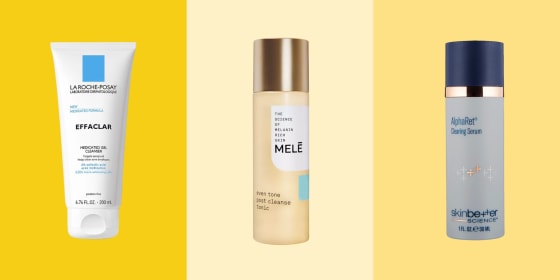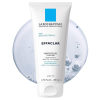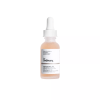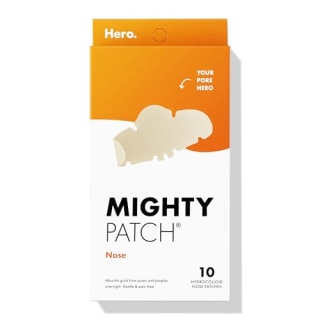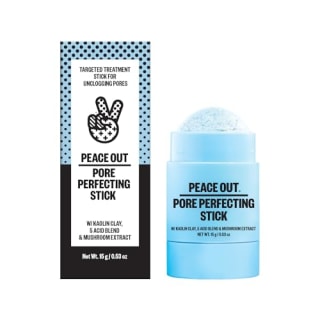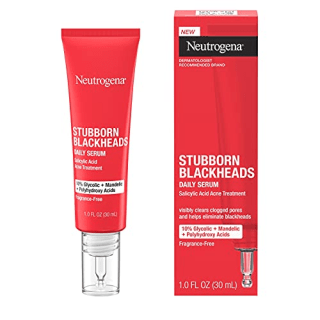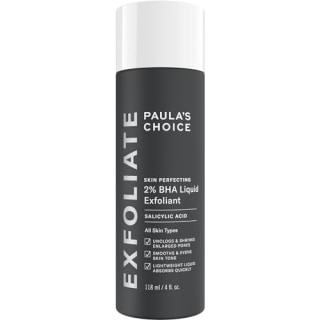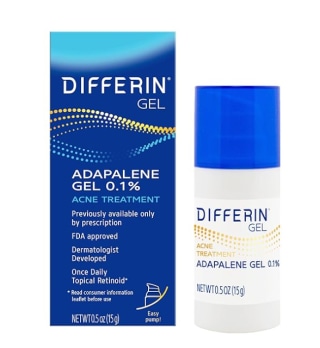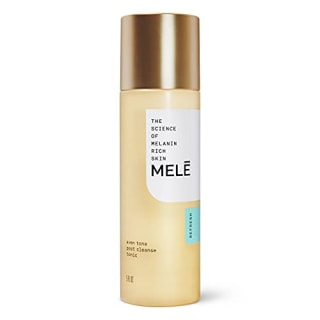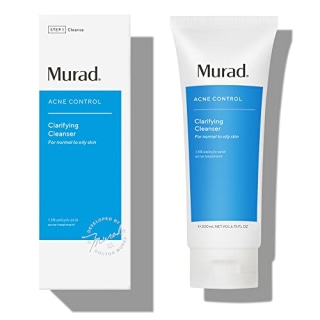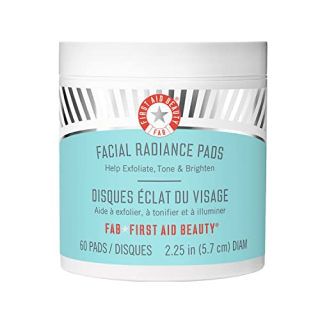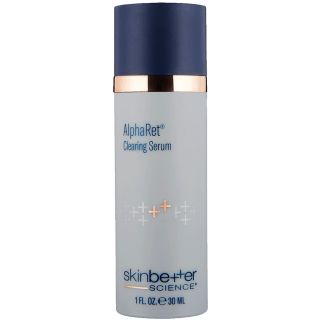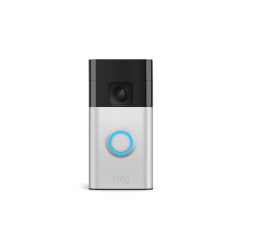If you have acne-prone skin, you're probably familiar with those pesky dark spots on the forehead, nose or chin, commonly known as blackheads. Although it may be tempting to pop and pick at them when they appear, that only makes the problem worse, according to experts.
With so many cleansers and exfoliants on the market, it can become difficult to narrow down the ones that actually work. We spoke to board-certified dermatologists about the best blackhead-fighting ingredients, how to safely and effectively remove blackheads at home and which over-the-counter products they suggest.
What are blackheads?
Open comedones, or blackheads, start as sebum plugs, which are collections of oily liquid that help the skin stay lubricated. When they mix with bacteria and dead skin cells, they clog up pores, according to board-certified dermatologist Dr. Deborah Spey. Exposure to air causes blackheads to oxidize, turning them black — hence their name. They're commonly found on the nose, forehead, chin, back and chest since they are sebum rich areas, says board-certified dermatologist Dr. Arash Akhavan.
How we picked the best blackhead treatments
Dermatologists recommend focusing on preventing future breakouts and decongesting current blackheads with the following ingredients:
- Retinoids: These help regulate cell turnover and prevent the pores from becoming congested, says board-certified dermatologist Dr. Karen Burke. Topical retinoids work on all types of acne but are especially helpful for blackheads and whiteheads, she says.
- Salicylic acid: A type of beta hydroxy acid (BHA), salicylic acid penetrates pores to help dissolve oil, unclog pores and prevent buildup of dead skin, oil and other debris, says Spey.
- Benzoyl peroxide: This is an antioxidant, so it kills bacteria and stops the lipid, the protective layer of cells, from oxidizing, according to Burke. Cleansers that combine both benzoyl peroxide and salicylic acid are very effective at treating blackheads, says Burke.
- Lactic acid: Lactic acid is an exfoliant that helps break up dead skin cells and unclog pores, says Spey.
- Charcoal: Charcoal doesn’t prevent future blackheads, but it does offer some immediate benefits like drawing out impurities such as oil, debris and dirt from your pores, which helps minimize their appearance, according to Spey.
The best blackhead treatments in 2026
Below I've listed carefully-selected, dermatologist-recommended and highly rated products that help treat and ultimately get rid of blackheads.Each one has decongesting ingredients like retinoids, salicylic acid and benzoyl peroxide, in line with our experts’ guidance.
Best cleanser
This face wash is specifically designed for oily and acne-prone skin and serves as a solid alternative for anyone who doesn’t like to use a harsh facial scrub. The gel cleanser is a great option to reduce blackheads and blemishes because it has salicylic acid and lipohydroxy acid, which is another derivative of salicylic acid and works as an exfoliant, says Spey.
Best strip
Unlike traditional pore strips (which can cause more harm than good because they can irritate your skin), these are made from the same material as pimple patches: hydrocolloids. These nose strips, which the brand recommends applying at night, gently clear out your pores while you sleep, according to the brand. After six to eight hours of wear, they come off easily without causing pain or leaving behind any gunk, according to Mighty Patch.
Best stick
This stick physically and chemically exfoliates your skin to smooth texture, clean pores and minimize the appearance of your blackheads, according to the brand. Reviewers say this treatment, which has a 4.5-star average rating from over 400 reviews at Sephora, doesn’t irritate their skin, reduces excess oil and helps combat and prevent blackheads.
Best serum
Unlike most serums, which you tend to apply all over the face, this one lets you use a small, thin layer to cover your breakout. Leaving it on will allow its key ingredients to clear out pores and combat breakouts and blackheads since it effectively exfoliates and sheds away dead skin, according to the brand.
Best exfoliant
This dermatologist-recommended liquid exfoliant helps minimize pores and improve your skin’s texture while soothing and supporting the skin barrier, according to experts in our guide to exfoliating. Reviewers say this is especially helpful for combatting not only blackheads but all types of acne. They also say you may experience some skin purging at first, which means you’ll notice a few breakouts or texture, but once it unclogs all the pores, the skin clears up.
Best overall
This NBC Select Wellness Award winner won’t make your blackheads disappear overnight, but it can help treat existing blackheads and prevent new pimples from forming, says Burke. She calls this over-the-counter retinoid a “must-have” for anyone dealing with blackheads because it helps regulate skin cell turnover, which can prevent pores from clogging. Differin gel has 0.1% adapalene, which is an expert-recommended ingredient to help treat acne.
Best toner
Mele’s facial toner contains blackhead-dissolving lactic acid, which can also help minimize the appearance of enlarged pores, hyperpigmentation and age spots, says Spey. This toner also has vitamin C to help fade dark spots and even out the skin tone, according to the brand. It also has lactic acid, which is an alpha hydroxy acid (AHA).
Best for oily skin
This foaming gel cleanser helps remove excess oil, unclog pores and treats acne with ingredients like salicylic acid. Since salicylic acid can dry out or irritate the skin, the cleanser has green tea extract to soothe any irritation and redness, according to Murad. It’s a foaming cleanser, which means it’s best for oily and acne-prone skin due to more drying ingredients — however, the brand has a cream-based version with a lower concentration of salicylic acid made for those with dry skin. It’s also highly rated, with a 4.7-star average rating from over 5,400 reviews on Amazon.
Best hydrating
The toner, which has a 4.3-star average rating from over 7,400 reviews at Sephora, has two types of beta hydroxy acids, willow bark extract and betaine salicylate, both of which help unclog pores and minimize their appearance, according to the brand. As the product’s name suggests, it is also made with hydrating watermelon extract to help the skin retain moisture and polyhydroxy acids (PHA) to help improve texture, according to Glow Recipe.
Best pads
If you’re targeting blackheads, enlarged pores, texture and hyperpigmentation, consider these exfoliating facial pads. Reviewers say they notice their skin is a lot smoother after consistently using them, and they notice a decrease in breakouts. Shoppers also appreciate that these pads are compostable, which isn’t always the case with single-use skin care products. It has a 4.7-star average rating from over 400 reviews on Amazon.
Best splurge
This clearing serum combines the benefits of salicylic acid and retinoids, says Spey. The serum can help improve the skin’s tone and texture, minimize acne and reduce pore size using ingredients like lactic acid (to moisturize and improve texture), salicylic acid (to aid with pore decongestion) and niacinamide (to improve texture and moisture in the skin), says Spey.
Best budget pick
This water-based exfoliator has lactic acid as its main ingredient, which helps unclog pores and even out your skin’s tone and texture, according to the brand. You should apply this treatment at night following your cleanser and before applying your moisturizer, according to The Ordinary. This serum has a 4.5-star average rating from over 1,400 reviews at Sephora.
How to shop for blackhead treatments
When shopping for a blackhead treatment, our experts recommend looking for specific pore-clearing products that will safely remove this type of acne. Here are some more shopping tips to keep in mind:
- Check the ingredient list. Common blackhead treatments will include acne-fighting and decongesting ingredients, including retinol, salicylic acid, lactic acid, benzoyl peroxide and charcoal. These ingredients can help control oil production, unclog pores, kill bacteria and prevent future breakouts, experts say. While you can benefit from combining some ingredients like benzoyl peroxide and salicylic acid, layering on too many actives can cause irritation, says Spey.
- Introduce these products slowly. It’s important to gradually incorporate blackhead-fighting products into your routine, especially those with ingredients like retinol that can be aggressive on the skin, experts say. Since acids like salicylic acid can irritate and dry out your skin, you should start by using them a few times a week at first and gradually increasing frequency over time, says Burke. For normal to oily skin, you can use acne-fighting ingredients like salicylic acid daily at a lower concentration. If you have sensitive skin, you should only use them as much as your skin can tolerate, but generally not more than 2-3 times a week, says Akhavan. For specific exfoliants like coarse scrubs, only use them a few times a week and avoid using them daily unless otherwise directed by your dermatologist because it can cause tears in the skin, says Spey.
- Be sure to look out for hydrating ingredients. Ingredients like green tea extract and hyaluronic acid can hydrate the skin and soothe irritation. If you’re using acne serums or scrubs, use a gentle cleanser rather than an acne cleanser and apply a moisturizer afterward to prevent excess dryness, says Spey.
Frequently asked questions
There are many ways to treat blackheads, including using over-the-counter products like a toner or scrub or extracting them entirely with the help of devices and professionals. No matter the method, there are a few things to consider when choosing the proper treatment, like safety concerns, duration and benefits.
Type of products: Incorporating acne-fighting and oil controlling products, including cleansers, serums and masks, in your routine is the safest way to treat and prevent a future blackhead breakout, experts say However, it will take you some time to see results, says Burke. You should also look for hydrating ingredients to moisturize your skin because acne-fighting ingredients can cause dryness, experts say.
Exfoliation: Using a physical exfoliant can help prevent the formation of the sebum plug, which initiates a new blackhead, says Burke. If you’re using an exfoliating scrub, you should opt for a gentle formula with smooth beads because harsher, more abrasive scrubs can create microtears in the skin and cause infection, says Spey. Using a washcloth or a gentle Buf-Puf with a cleanser that has a chemical exfoliant like salicylic acid is another way to get rid of blackheads at home because it decreases sebum and kills bacteria, says Burke.
Comedone extractor : Spas and dermatologists will typically use a comedone extractor during facials. However, Spey doesn’t recommend them for at-home use since you might risk injuring your skin. If you do use a comedone extractor, you should clean the tool with alcohol before use and apply alcohol onto the skin before and after removing any blackheads to prevent infection, says Burke.
Pore vacuums: Pore vacuums can quickly improve the appearance of pores by temporarily removing buildup, but they do not prevent blackheads from reoccurring and could create redness and broken blood vessels in the skin, experts say.
Professional extraction: In order to avoid potential damage to the skin or worsening the blackhead, consider going to a professional. Typically, a dermatologist with the proper knowledge and tools will use steam to open the pores and remove blackheads by using vacuum suctions, masks or other professional extracting devices.
Never use your fingernails to squeeze out blackheads, according to our experts. “This could cause crush injury,” says Spey. “You won’t really be getting under the blackhead, so it will likely get deeper and cause an inflammatory lesion and a scab.” And although facial cleansing brushes help clean residue and particles from your face, they do not reach the sebum and keratin inside the pores and aren’t useful for treating blackheads, says Spey.
“It is much easier to prevent blackheads than it is to treat them,” says Burke. If you’re already dealing with a breakout and want to prevent it from escalating, you should have a professional do the initial extractions. Afterward, you can use an over-the-counter cleanser with acne-fighting ingredients like alpha or beta hydroxy acids or retinol creams to prevent new ones from forming, according to Burke and Akhavan.
Meet our experts
At NBC Select, we work with experts who have specialized knowledge and authority based on relevant training and/or experience. We also take steps to ensure all expert advice and recommendations are made independently and without undisclosed financial conflicts of interest.
- Dr. Deborah Spey is a board-certified dermatologist at Schweiger Dermatology Group in New Jersey.
- Dr. Karen Burke is a board-certified dermatologist at her own private practice in New York City as well as a faculty member of the Department of Dermatology at Mt. Sinai Icahn School of Medicine.
- Dr. Arash Akhavan is a board-certified dermatologist and founder and director of The Dermatology & Laser Group in New York City.
Why trust NBC Select?
Nicole Saunders is a former associate commerce editor for NBC Select on NBC News, covering wellness and lifestyle at NBC Select. For this piece, she interviewed two experts to gather their tips and product recommendations.
Bianca Alvarez is a former associate reporter at NBC Select. For this piece, she interviewed an expert and researched blackhead treatments that are in line with expert recommendations.
Catch up on NBC Select’s in-depth coverage of tech and tools, wellness and more, and follow us on Facebook, Instagram, Twitter and TikTok to stay up to date.

